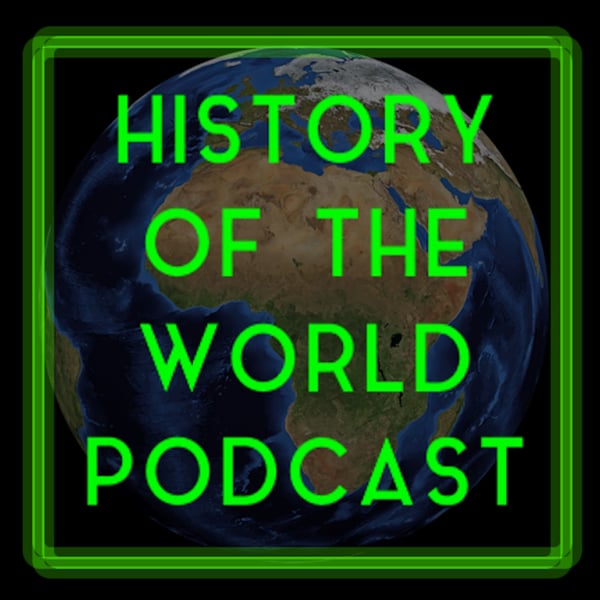Vol 2 Ep 9 - The Phoenicians
History of the World podcast
Chris Hasler
4.8 • 971 Ratings
🗓️ 24 March 2019
⏱️ 46 minutes
🧾️ Download transcript
Summary
Transcript
Click on a timestamp to play from that location
| 0:00.0 | Welcome to the History of the World Podcast. My name is Chris Hasler. |
| 0:07.0 | And you're listening to volume 2, The Ancient World. This is episode... The Venetians. |
| 0:13.0 | This is episode 9, the Venetians. Oh, To introduce our story this week we need to go back to the late Bronze Age collapse. |
| 0:46.9 | Now, we are aware that many of the empires of the Near East suffered during the 10th century B.C. |
| 0:56.2 | Some historians like to apportion some of the blame for this on Sea Peoples because Sea Peoples are the collective name |
| 1:06.3 | for those invaders of these mighty empires particularly Egypt. |
| 1:12.8 | New kingdoms emerged, not least of all, |
| 1:16.1 | on the Mediterranean coasts, and some of them, |
| 1:19.2 | such as the Philistines, had cultural connections with older cultures such as the Mycenians, which suggest some |
| 1:28.5 | kind of displacement of peoples going on. When it comes to pinpointing the origins of the Phoenicians, |
| 1:38.0 | there isn't really much to go on. We are not really sure exactly who they are, and we are not really sure if they have one origin. |
| 1:47.0 | The land of the Phoenicians before the late Bronze Age collapse was predominantly run by the Egyptians. |
| 1:57.0 | However, the Egyptians lost all of their Levantine lands at the end of the 13th century B.C. and the whole of the Levant appears to have |
| 2:06.3 | fragmented into self-sufficient city states. |
| 2:11.5 | And Tarados is an ancient city state which corresponds to the modern city of Tartus, which is a coastal |
| 2:21.2 | city of modern Syria so therefore it faces out into the Mediterranean. |
| 2:30.3 | Its name Antarus, is derived from Anti, which means opposite or facing, and Aridus, corresponds |
| 2:40.8 | to the Greek name for the small Mediterranean island of Arwad, which also belongs to Syria. |
| 2:49.0 | This was an active area of the Levant in ancient times and Greek-style sarcophagi. |
| 2:57.0 | This could indicate a historical trade relationship with the Greeks. |
| 3:03.0 | Or it could be that the Greek peoples migrated to this area |
| 3:08.0 | as we suspect may have been the origin of the Philistines. |
... |
Please login to see the full transcript.
Disclaimer: The podcast and artwork embedded on this page are from Chris Hasler, and are the property of its owner and not affiliated with or endorsed by Tapesearch.
Generated transcripts are the property of Chris Hasler and are distributed freely under the Fair Use doctrine. Transcripts generated by Tapesearch are not guaranteed to be accurate.
Copyright © Tapesearch 2025.

